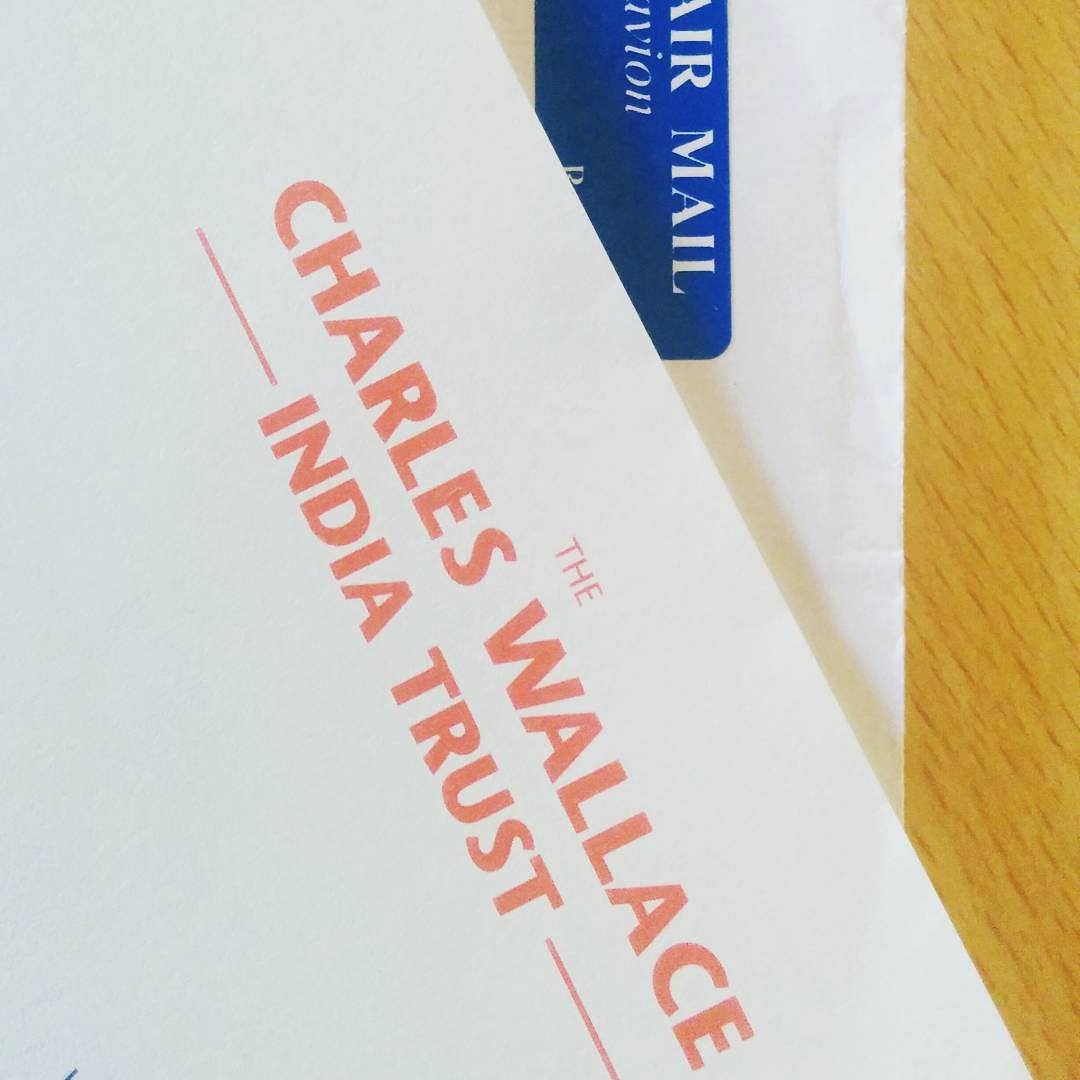Am so thrilled to share with all of you that I’ve just received the Charles Wallace India Trust writing fellowship for speculative fiction. Yup, speculative fiction. You know the one which has monsters and aliens and spaceships and rakshasas and cool things that stay away from the so called ‘serious’ writing? Which means I get to write science fiction stories (the new book I’m planning post Anantya Tantrist’s third book is finished) and get to attend creative writing classes and meet faculty and students and gorge through the folklore library at Chichester University, all at the same time. Ain’t life fun?
Though I applied for the fellowship, I’d never really thought I would get it. And I’m still surprised, since I’d applied for a science fiction writing gig. There are a few friends who helped me shape the application (thank you Samit, Ajitha, Seema, Ranjita, Uthara) which got the thumbs up from the kind faculty at Chichester (that’s a shout out for you, Stavroula!). And there are a few things I learnt while writing the application. Which is why this blog. I hope readers who’re applying for fellowships/scholarships and don’t know where to start, find some guidance here.
1) Have a project in mind
Don’t start with ‘I want to go for this fellowship’, start with ‘I want to write this book, this story, or work on this project.’ Have a clear vision on what exactly you want to do. I don’t mean know what you want to write or create, for there will never be so much clarity on that, but have a strong idea on what kind of story you want to create, what project, so you can express it as clearly in the proposal. I waited for four years to apply for any fellowship, for I wanted to be sure the project I wanted to work on needed it. The science fiction project I mentioned, needs me as a writer to learn more on the overall Sci-fi genre, to read more, to be exposed to well-read faculty, facilities and ideas.
2) Do your research
There are many fellowships out there, and many universities offering them. Don’t make a generic project and reach out to everyone (read point 1). After you’ve figured what’s your project going to be, understand who and where you’re sending in your application to. Find out what you’ll get out of it, more than the travel and a place to stay. All universities have fantastic faculty as well as courses that can help build up your skills. Once you’ve studied the various facilities offered by a university, choose the one that suits you best. And build that into the application. The university is looking for a good fit for their campus as much as you’re looking for the fit yourself. (In my case, I was swayed by Chichester’s awesome Folklore library, which I can’t wait to get my hands on being a folklore story-collector myself.)
3) Make time and take it seriously
This was perhaps one of the most useful advise I got and I will put it here, though you might already be aware of it. I write my fiction simply, in a popular, read-as-you-go style. (My inspiration remains Terry Pratchett and Hemingway). However, the application you’re creating is for academics and it does help if you talk about the project not how you want to write it but keeping in mind the overall ecosystem the project is going to be in. Your language should be formal, a little academic, and your application should place your own work in the larger framework of the genre you want to create in.
 4) Tell them how you will help
4) Tell them how you will help
Are you a scholar of a specific period in Indian history? Have you been writing articles on technology and how it grows in India? Or have you been researching on oral Indian mythology? What skills, expertise, personality, and network will you contribute to the university? Though most of them won’t ask this, as I said, universities are looking for someone who is a good fit. If they feel you have knowledge that will add to the cultural cauldron they want to create in their university, you’re a step ahead in the application. Again, this was something that wasn’t part of my draft application and it was thanks to feedback that I put it in.
5) Get feedback
I made a strong application all thanks to multiple feedback I took from people I trust. Always, always, and I can’t stress it enough, take feedback. Don’t take it from someone who you think knows the fellowship game (for no one really does) or someone who might have a lot of ‘contacts’ in the industry (that Delhi-idea I keep coming across), but take feedback from a good editor, someone you trust, from a friend who’s in the academics but not in your field, from a writer writing your genre, from your spouse (if you have that kind of a relationship), or even a stranger. And always edit and then edit some more before you send out that application.
After note: I’m still learning on this one so expect more updates to the blog. If you trust my advice here and would want to take more of it, you’re most welcome to contact me. I’ll try to help to the best of my abilities! All the best and keep writing! And yay to Charles Wallace!


4 Replies to “How to write an application for a writing fellowship”
Comments are closed.